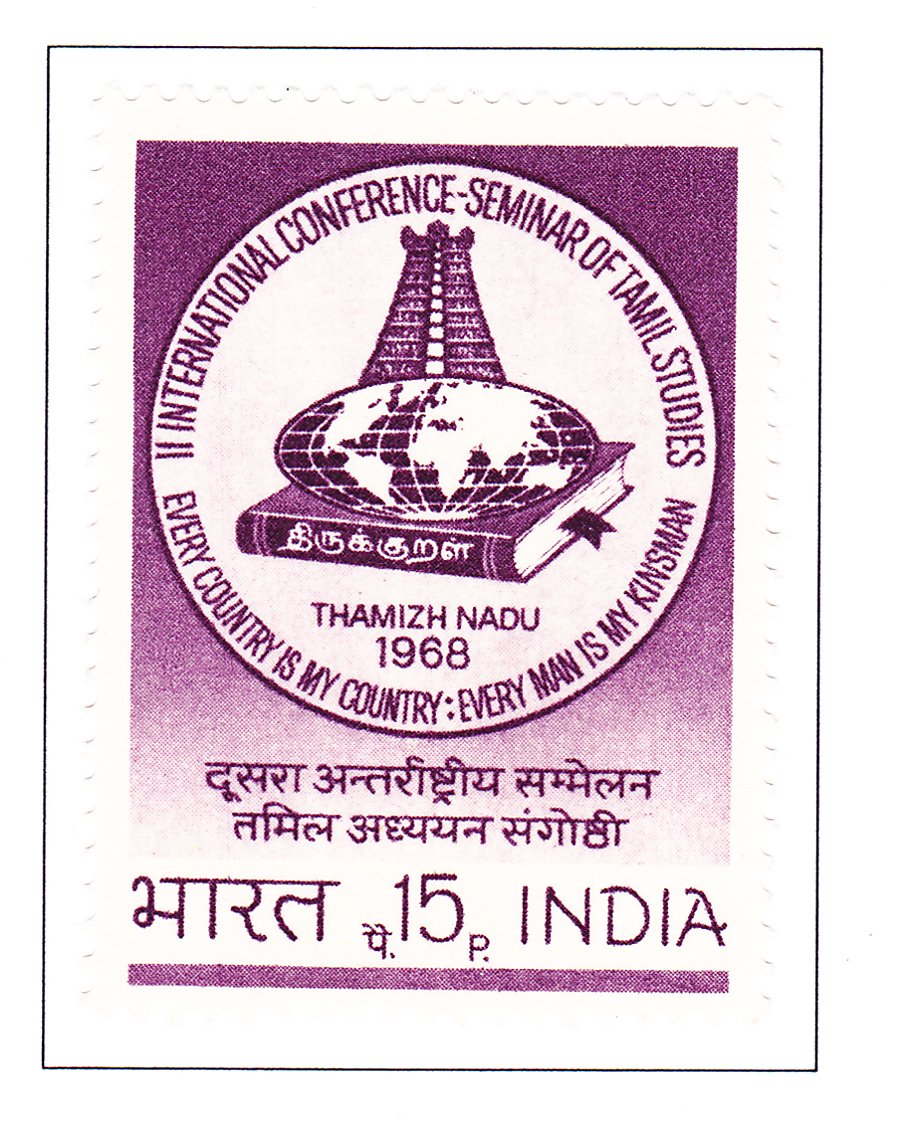II International Conference Seminar of Tamil Studies

Technical Data
| Date of Issue | January 3, 1968 |
|---|---|
| Denomination | 15 nP |
| Quantity | 2,000,000 |
| Perforation | comb 13 |
| Printer | Security Printing Press, Nashik |
| Watermark | No Watermark |
| Colors | Reddish lilac |
| Catalog Codes |
Michel IN 444 Stamp Number IN 462 Yvert et Tellier IN 245 Stanley Gibbons IN 560 |
| Themes | Books | Conferences | Globes | Languages |
Tamil studies have historically received less attention from international scholars compared to other linguistic and cultural disciplines. However, Tamil stands out as a unique example in history, being the only ancient classical language with an uninterrupted literary tradition spanning over 2000 years. Remarkably, the language has retained its form and significance as the spoken language of more than 40 million people throughout this extensive period.
The interest in Tamil studies among Western scholars began to grow following Sir William Jones’s observation in 1786 regarding the resemblance between Sanskrit, Avestan, Greek, Latin, and modern European languages. Initially, Indology was synonymous with Sanskrit studies, but with the progress of scholarship, the distinctive origin and significance of Tamil and other Dravidian languages became recognized.
The global interest in Tamil was further piqued by the migration of Tamil-speaking communities to various parts of the world, such as South Africa, Malaysia, and Fiji Islands. Notably, the Tamil community played a significant role in Mahatma Gandhi’s struggle against racial discrimination in South Africa, earning admiration from Gandhi himself for their contributions and the beauty of the Tamil language.
In 1964, the International Association of Tamil Research was established by eminent scholars to foster international interest in Tamil studies. The association organized the first International Conference-Seminar of Tamil Studies in Malaysia in April 1966, with active support from the University and Government of Malaysia. This successful event attracted over 200 scholars from 25 countries.
Building on this momentum, the second International Conference-Seminar of Tamil Studies was scheduled to take place in Madras from January 3rd to January 10th, 1968. The conference aimed not only to engage scholars and specialists but also to involve the general public through exhibitions, public meetings, processions, and the unveiling of statues.
To commemorate this significant event in the cultural life of the country, the Posts & Telegraphs Department issued a special postage stamp. The stamp features the emblem of the Conference, depicting a globe and a temple tower resting on a book with the word ‘Thirukkural’ in Tamil script. It also includes the maxim, “Every country is my country; every man is my kinsman,” attributed to the renowned Tamil poet Poongundran.
